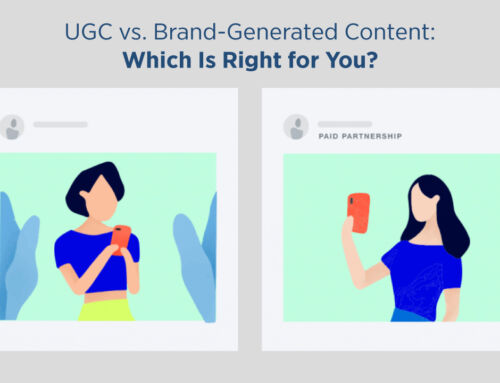Last updated on 3 November, 2021
Just 11% of Canadians believe Tim Hortons’ recent changes to its Roll Up The Rim contest have improved the promotion. That’s the verdict of Caddle’s 10,000 panel of daily survey responders.
With its restaurants only open for drive through and delivery due to the COVID-19 pandemic, Tim Hortons new, largely digital contest got a thumbs down from our panel.
Caddle members told us that they welcomed the improved sustainability from a shift away from paper cups. However, this was not a big enough issue to impact sentiment of the program overall.

Instead, we found that a key factor determining how Canadians feel about the new Roll Up The Rim process was simply whether they won a prize or not.
Get insights to your inbox: Join the Caddle mailing list here
What changed in Roll Up The Rim?
Initially, Tim Hortons had planned to make sustainability a bigger part of this year’s contest. The four-week campaign also would have split into two phases.
The first 14 days would see customers who purchased a beverage getting a chance to roll up a paper rim. The second half of the campaign would be digital only.
Alongside this, 1.8 million free reusable cups were to be distributed to launch the campaign, with customers getting an extra digital ‘roll’ for reusing their cup.
However in response to public health concerns from the coronavirus pandemic, Tim Hortons announced that the campaign became digital-only for its entirety.
Caddle surveyed the panel after the 2020 Roll Up The Rim Campaign launched. So these findings are a verdict on the campaign as it ran, not as it was initially proposed by Tim Hortons.
What did consumers make of Roll Up The Rim 2020?
Across our entire panel, just 11% felt that the changes improved the contest, with 40% saying this year’s Roll Up The Rim was worse than previous years.
For those who actually participated in this year’s contest, the picture was a little less negative.

Over a quarter of panel members who had tried Roll Up The Rim told us this year’s version was better, compared to 38.2% who said it was worse.
This suggests at least part of the problem could be perception. Overall, Canadians held slightly more favourable opinions when they had participated in the new Roll Up The Rim format.
Which groups were most receptive?
Looking deeper into the demographics, men preferred the new Roll Up The Rim format more than women — especially when they had participated this year.
For all panel members, 13.8% of men preferred the contest compared to 42.4% who liked previous years better. For women, 9.4% enjoyed the changes compared to 46.3% who found it less appealing.
Among those who participated this year, the change is more marked. For Men, 37.4% preferred the 2020 format, while 27.6% liked it less. For women who played, the difference was 24.7% in favour compared to 41.2% against.
Our data also suggests that the changes appealed most to younger Canadians, rather than Tim Hortons’ traditionally older market. Meaning new format was potentially least popular with the groups most likely to go to Tim Hortons in the first place.
Including participants and non-participants, 15.8% of Gen Z Canadians preferred this year’s contest, compared to 10.3% of Millennials, 9.8% of those in Gen X and 8.9% of Baby Boomers.
Did the sustainability strategy work?
The good news for Tim Hortons is that the added sustainability of their 2020 campaign did break through with consumers.
Just over 45% of our panel said the new format improved environmental sustainability, compared to 40% who said it made no difference.
The problem Tim Hortons faces is that sustainability isn’t high on the list of things people look for in the contest.
Just 4% of the panel picked environmental sustainability as something they looked for in Roll Up The Rim — the lowest percentage for any of the options available.

Far more important to customers were the odds of winning and the number of prizes, and other Caddle data underlines this point.
Winning is everything
Segmenting panel responses according to whether respondents won a prize or not, provided a useful insight.
Canadians who won a prize in the 2020 Roll Up the Rim contest, were markedly more positive about the contest.
44.1% of prizewinners said they preferred this year’s format, compared to 23.5% who preferred how the contest worked in previous years.

Main Takeaways
No.1 |
Sustainability and a more digital offering do not appear to be what Tim’s core market was looking for in the contest.
The goal of a contest should be promoting loyalty among core customers, and should be designed with them in mind.
No.2 |
Despite the overall lack of approval for the new format, the fact that those who played were more receptive suggests there positives to build on.
Considering the disruption caused by the COVID-19 pandemic, as well as some inevitable consumer hesitancy about change, the data suggests a digital Roll Up The Rim could still work — so long as the messaging strategy is improved.
No.3 |
Across all age groups and genders our panel members much preferred the new format if they had participated and won a prize. This is the key to acceptance.
To further evolve Roll Up The Rim in 2021, Tim Hortons should base the campaign around increased odds of winning, and make this the key message, alongside the speed and convenience of a digital format.
No.4 |
Environmental sustainability is arguably a hygiene factor, and as such should not be the main message of a contest campaign.
A perceived lack of environmental sustainability with the original format of Roll Up The Rim may have been a negative for the campaign. This does not mean that making sustainability the focus would be a positive factor that would attract consumers to the contest.
Make sure you never miss an insight. Sign up to the Caddle mailing list now.
To find out how you can build custom data with Caddle’s daily survey panel contact us here!
*Disclaimer: all data presented is owned by Caddle and has a Margin of Error of 1% or lower.
Get better business insights, faster, with Caddle.
Want more Caddle Insights? Sign up to our email list!





Leave A Comment